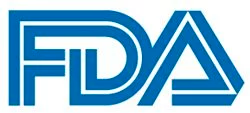FDA Accepts sBLAs for Enfortumab Vedotin/Pembrolizumab in Advanced Urothelial Cancer
The FDA has granted a priority review to a supplemental biologics license applications for enfortumab vedotin and pembrolizumab used in combination for the treatment of patients with locally advanced or metastatic urothelial cancer who are not eligible to receive cisplatin-containing chemotherapy.

The FDA has granted a priority review to a supplemental biologics license applications (sBLAs) for enfortumab vedotin-ejfv (Padcev) and pembrolizumab (Keytruda) used in combination for the treatment of patients with locally advanced or metastatic urothelial cancer who are not eligible to receive cisplatin-containing chemotherapy. The respective applications are intended to expand the labels for both agents, according to a joint press release from Seagen, Astellas, and Merck.1
The sBLAs are based on data from the A, K, and dose escalation cohorts from the phase 1b/2 KEYNOTE-869/EV-103 trial (NCT03288545). Data from dose escalation/Cohort A demonstrated an overall response rate (ORR) of 73.3%. Data from cohort K presented at the 2022 ESMO Congress showed that the combination elicited an ORR of 64.5% with a manageable safety profile.2
The FDA set a Prescription Drug User Fee Act goal date for each application of April 21, 2023.
“Despite advancements in treatment options, approximately half of advanced bladder cancer patients in the US are ineligible for cisplatin-based chemotherapy, and these patients need new options,” Eliav Barr, MD, senior vice president, head of global clinical development and chief medical officer for Merck Research Laboratories, said in a news release. “We are encouraged by the investigational results of the combination of [enfortumab vedotin] and [pembrolizumab] for this patient population and are fully committed to work to bring this new approach forward to patients.”
Investigators randomly assigned previously untreated, cisplatin-ineligible patients with locally advanced or metastatic urothelial cancer to 1.25 mg/kg of enfortumab vedotin monotherapy on days 1 and 8, or in combination with 200 mg of pembrolizumab on day 1 of every 3-week cycle. The primary end point was confirmed ORR by blinded independent central review. Secondary end points included duration of response (DOR), overall survival (OS), and safety.
A total of 149 patients were included in the study, 76 of whom were treated with enfortumab vedotin plus pembrolizumab and 73 who were treated with enfortumab vedotin alone. The confirmed ORR for enfortumab vedotin plus pembrolizumab was 64.5%, and median DOR was not reached. Confirmed ORR for enfortumab vedotin alone was 45.2%, with a median DOR of 13.2 months.
In the combination arm, 15.6% of patients stopped treatment due to an adverse effect (AE) vs 24.3% of patients receiving enfortumab vedotin alone. The most common AEs in the combination arm included fatigue, peripheral sensory neuropathy, alopecia, and maculo-papular rash. Eighteen patients (23.7%) experienced serious treatment-related AEs (TRAEs) in the combination group compared with 11 patients (15.1%) in the monotherapy group.
Investigators observed 3 (3.9%) TRAEs leading to death in the combination group vs 2 (2.7%) in the monotherapy group. Skin reactions were more frequent in the combination arm, although none were serious.
The indication for enfortumab vedotin includes a black box warning for severe or fatal skin reactions including Stevens-Johnson syndrome and toxic epidermal necrolysis.
The complete response rate was 15.6% in data from 45 patients treated with the combination published in Journal of Clinical Oncology, including a median DOR of 25.6 months and a median OS of 26.1 months.3
Seagen, Astellas, and Merck are further investigating enfortumab vedotin plus pembrolizumab in the ongoing phase 3 KEYNOTE-A39/EV-302 study (NCT04223856) evaluating the clinical benefit for the investigational treatment combination in patients with previously untreated advanced UC. The trial is intended to serve as the confirmatory trial for the potential accelerated approval in the United States and serve as the basis for global registration.
References
- Seagen, Astellas, and Merck announce FDA acceptance of sBLAs for PADCEV (enfortumab vedotin-ejfv) with KEYTRUDA (pembrolizumab) for the first-line treatment of certain patients with locally advanced or metastatic urothelial cancer. News release. Seagen, Astellas, and Merck. December 20, 2022. Accessed December 20, 2022. https://bit.ly/3WvLCjB
- Rosenberg JE, Milowsky M, Ramamurthy C, et al. Study EV-103 Cohort K: Antitumor activity of enfortumab vedotin (EV) monotherapy or in combination with pembrolizumab (P) in previously untreated cisplatin-ineligible patients (pts) with locally advanced or metastatic urothelial cancer (la/mUC). Ann Oncol. 2022;33(suppl 7):LBA73. doi:10.1016/annonc/annonc1089
- Hoimes CJ, Flaig TW, Milowsky MI, et al. Enfortumab vedotin plus pembrolizumab in previously untreated advanced urothelial cancer. J Clin Oncol. Published online August 30, 2022. doi:10.1200/JCO.22.01643



